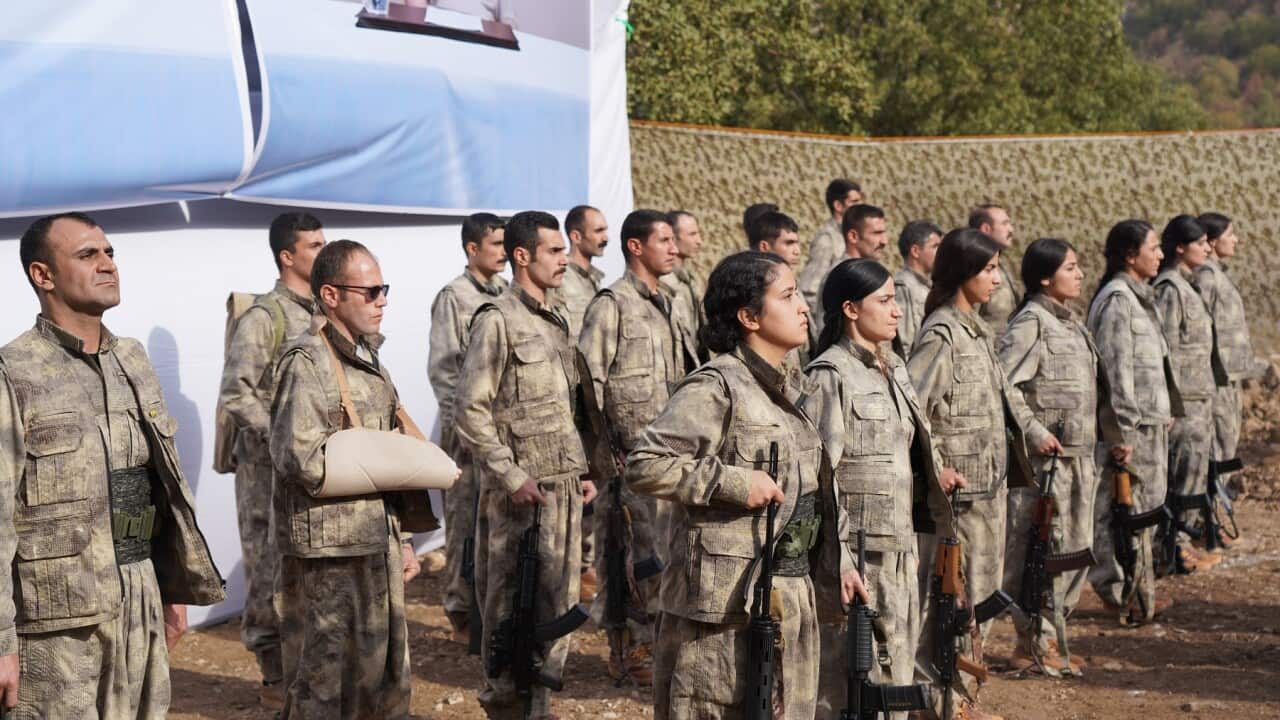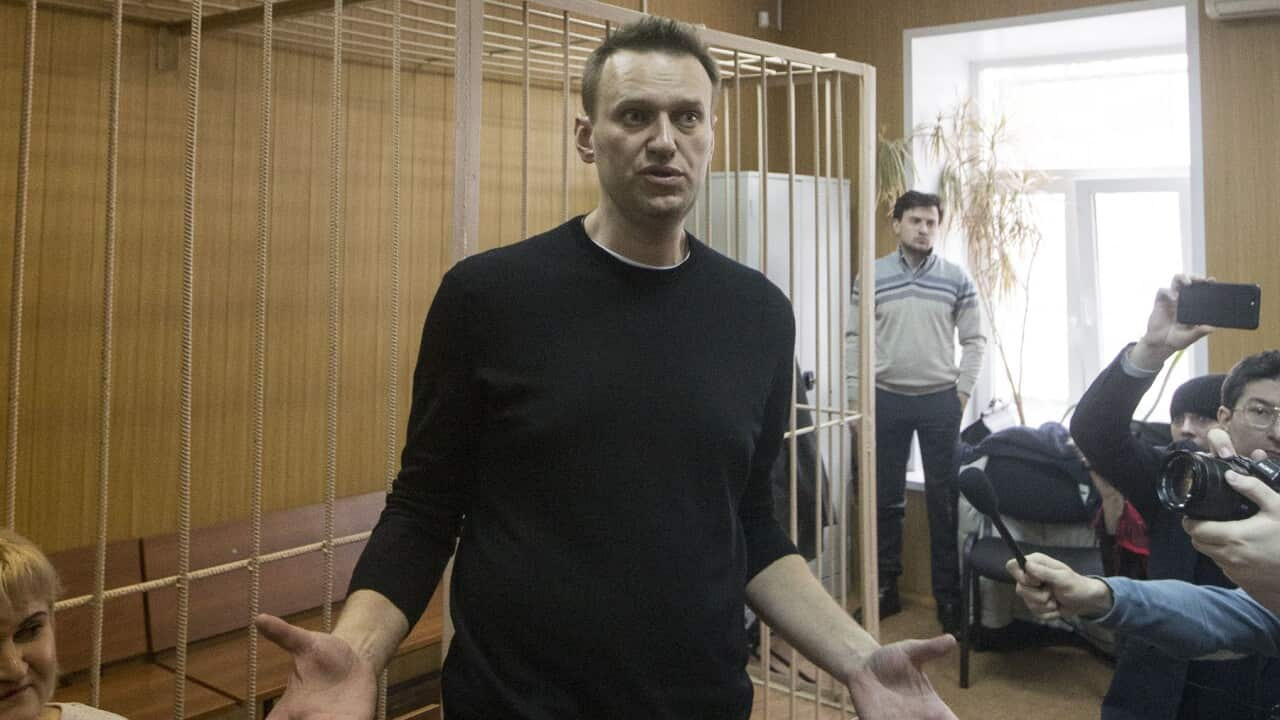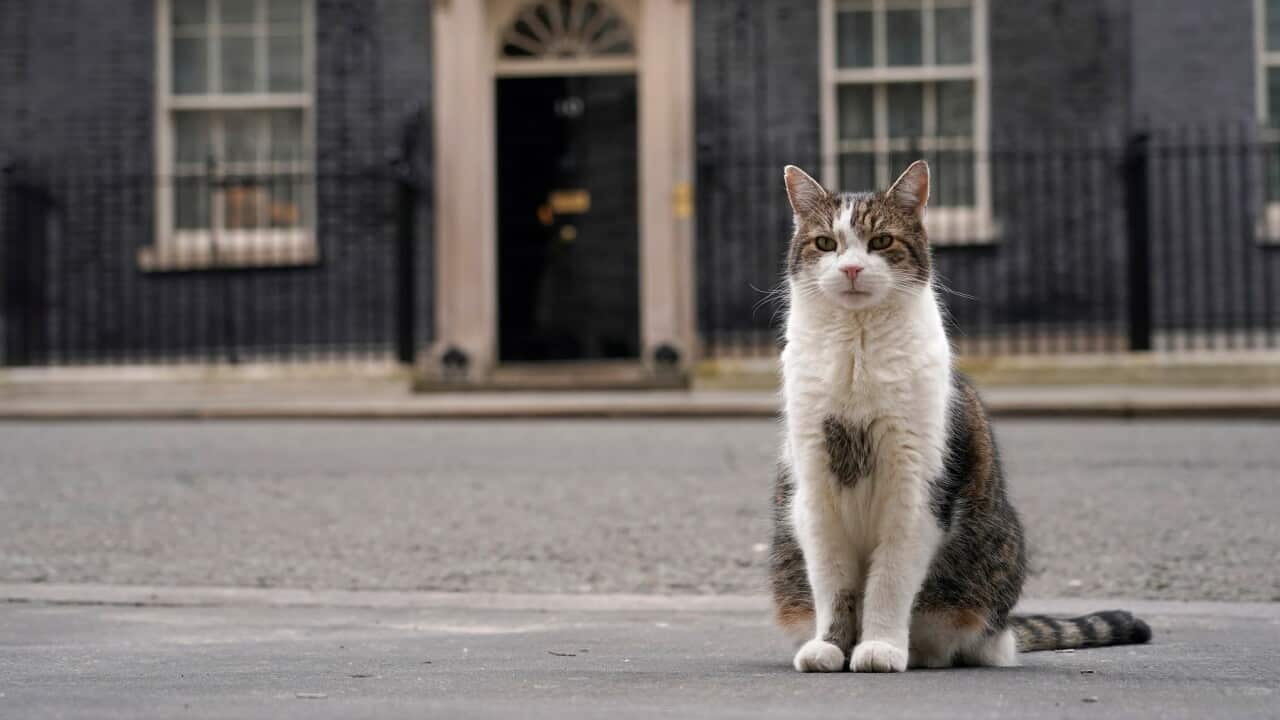Listen to Australian and world news, and follow trending topics with SBS News Podcasts.
TRANSCRIPT:
The Kurdistan Workers Party, a group known as the P-K-K, has waged an insurgency in Turkiye since 1984, originally in a bid to establish a Kurdish state.
The conflict has claimed more than 40,000 lives.
Over the years, the group's goals have shifted from seeking an independent state to seeking greater Kurdish rights and limited autonomy in mainly southeast Turkiye.
Now, after four decades of conflict, the militant Kurdistan Workers' Party is set to withdraw its fighters from Turkiye as part of a peace effort with the Turkish government.
Some in Turkiye, like 18-year-old university student Mirac Taylan, say they are relieved by the decision.
"I think it (PKK's decision to withdraw from Turkey) is correct. We don't want PKK in our country. People truly fear for their life and property. In other words, I believe all forms of the PKK should be outside the country. And, God willing, we don't want to see a PKK, or any terrorist organisation in our country in the future."
This latest announcement follows the PKK confirming in May that it would be disarming and disbanding, after a call to end its armed struggle from its jailed leader, Abdullah Ocalan Ocalan, who has been held in solitary confinement since 1999.
In July, the group - which is designated a terrorist organisation by Turkiye, the U-S, the E-U and Australia - burned some weapons in a symbolic act of good faith.
Now, the PKK says it is coordinating its withdrawal and disarmament with the Turkish government and has pressed Ankara for concrete measures to move the process along.
P-K-K spokesperson Zagros Hiwa says the move shows the group's commitment to the process and that the Turkish government should now also take legal and political steps without delay to pave the way for the P-K-K's transition into democratic politics.
"This is a one-sided step to show our assertiveness and seriousness that we wholeheartedly want this process to move forward."
The P-K-K has been based for some time in northern Iraq after being pushed well beyond Turkiye's southeastern frontier in recent years.
Turkiye's military carries out regular strikes on P-K-K bases in the region and has established several military outposts there.
Some Kurds in Turkiye have welcomed the move, including Diyarbakir resident Omer Levent.
"From now on, the state must convince the members of the organisation (PKK) and tell them to come to the country and say, 'We are brothers.' Otherwise, if you go somewhere else, our people will be subjected to oppression and injustice. Let's all join hands and make Turkiye a liveable place."
A spokesman for President Tayyip Erdogan's ruling A-K Party, Omar Celik, has written on social media that the group's withdrawal decision is a concrete result of the government's terror-free Turkiye agenda.
Celik also says the move would help shape the legal leg of the process that would allow the militant group to enter mainstream politics.
But Turkiye's government has warned against any move to sabotage peace efforts, without specifying what those threats are.
The end of Turkiye's conflict with the P-K-K could also have far-reaching consequences across the region, including in neighbouring Syria where the U-S is allied with Syrian Kurdish forces that Ankara deems a P-K-K offshoot.
Meanwhile P-K-K spokesperson Hiwa says that so far, the government is not being faithful to the process set in motion in May.
“So far, there have been no signs that Turkey, the Turkish state has changed its mentality or politics. If you have noticed, the Turkish state hasn’t even allowed the peace initiators to speak in Kurdish at the parliament. This is a sign that their politics of denying the Kurdish nation is still ongoing. It is like the blueprint of Turkish state policy, which is continuing, and leader Ocalan is still in prison.”













